ANKARA – September 17, 2025 – A panel titled “The Uyghur Issue in Today’s Conjuncture” was held at the Ankara City Council Hall in cooperation with the Ankara City Council and the Uyghur Academy. The discussion focused on China’s genocide and assimilation policies in East Turkistan and their international repercussions.
Moderated by retired Ambassador Metin Kılıç, Chairman of the Ankara City Council Diplomacy Assembly, the event brought together politicians, academics, diplomats, and civil society representatives.
Opening Remarks
In his opening address, Halil İbrahim Yılmaz, President of the Ankara City Council, said Ankara has always been the voice of justice and emphasized that the city council has stood by the oppressed at all times. He stressed that the tragedy faced by the Uyghur people should receive greater attention in Turkey.

Prof. Dr. Erkin Emet, Spokesperson of the World Uyghur Congress and a professor at Ankara University, welcomed the guests and thanked them for their participation. He highlighted China’s propaganda tours for foreign delegations, noting how such trips falsely portray “happy dances, language freedom, religious liberty, and the disappearance of concentration camps.”

Emet also reminded the audience that works by prominent Uyghur figures such as writer Perhat Tursun and activist Dolkun Isa have been published in Turkish. He discussed the importance of the book he translated himself and criticized the entry ban on Dolkun Isa in Turkey, calling it unacceptable.
Evidence and Testimonies of Genocide
Dr. Rishat Abbas, President of the Uyghur Academy, spoke about the special significance of Turkey for Uyghurs, sharing examples from his own life story. He described Turkey as a center of trust and hope for Uyghurs and then invited Abdulhamit Karahan, President of the Uyghur Academy Foundation, to deliver a presentation on China’s assimilation and genocide policies against the Uyghurs.

Karahan presented documented evidence with visuals, detailing China’s systematic campaign in East Turkistan. His presentation covered language bans, the forced Sinicization of children, restrictions on religious practices such as fasting, headscarves, and beards, the prohibition of Muslim and Turkic names, forced marriages, concentration camps, forced labor, organ trafficking, and testimonies of camp survivors.

Afterward, Dr. Abbas returned to the podium, stressing that in the face of such grave conditions, Uyghurs most urgently need the support of their Turkish brothers.
Moderator Metin Kılıç then shared his observations from his years as a diplomat in China and from his visits to East Turkistan. He explained that China’s migration policy in the region has been supported by government subsidies, fueling urban expansion.

Kılıç underlined that the Belt and Road Initiative is not merely an economic project but also a strategic tool to Sinicize the region and strengthen China’s dominance over neighboring countries. “We must be able to speak openly about the Uyghur issue in our relations with China. We must strive to create international pressure when necessary. Concerns over trade relations should not block these efforts. We must stop the glorification of China,” he said.
Diplomatic and International Perspectives
Retired Ambassador and Advisor to the Ankara Metropolitan Municipality, Ümid Yardım, recalled that while Turkish intellectuals in the past showed sensitivity to the East Turkistan issue, this never translated into concrete legal steps. He cited the statements of the Finnish Prime Minister and decisions of the European Parliament as examples that should serve as guidance for Turkey.

Yardım emphasized the importance of UN mechanisms, highlighting the report prepared by former UN High Commissioner for Human Rights Michelle Bachelet, which he described as a serious reference point in the international arena.
He stressed that Turkey must adopt a bolder and more determined stance: “We should not lag behind the decisions of Finland and the European Parliament, nor should we fear China. Turkey must keep the Uyghur issue on the agenda in UN mechanisms and within the Organization of Islamic Cooperation. If European countries can question China despite intense trade relations, then Turkey should be able to do the same.”
Speech by the President of the World Uyghur Congress
Turgunjan Alawdun, President of the World Uyghur Congress, said international reports and verified findings confirm that China’s policies constitute genocide. He pointed out that while 12 countries have recognized this as genocide, Turkey has failed to show sufficient reaction.

Alawdun urged the Turkish Grand National Assembly and the government to establish a commission on Uyghurs, grant them the right to citizenship, and defend the Uyghur people on the international stage.
Views of Politicians
Assoc. Prof. Dr. Selçuk Özdağ, Parliamentary Group Chair of the New Path Party and MP for Manisa, reminded that China has consistently refused to allow independent international delegations to conduct on-site investigations in East Turkistan. He said they had repeatedly requested direct visits: “If there really is no problem, we are ready to see it on the ground.” Özdağ stressed that independent delegations would provide the most transparent way to end debates.

Özdağ also recalled that Dolkun Isa, President of the World Uyghur Congress, is barred from entering only two countries: China and Turkey. He said it is unacceptable that such a friend of Turkey and one of the most important international representatives of the East Turkistan cause is denied entry into Turkey.
Dr. Ayyüce Türkeş Taş, Deputy Chairperson of the İYİ Party and MP for Adana, recalled her father Alparslan Türkeş’s sensitivity to East Turkistan and said: “East Turkistan is facing a reality of genocide unprecedented in history. Turkey must stand by East Turkistan more resolutely than ever and raise its voice louder.”

İdris Şahin, MP for Çankırı of the DEVA Party, criticized the extradition agreement with China and argued it should be rejected. He pledged to push for a parliamentary commission and submit questions in parliament. “Brotherhood cannot be sold for money. When voicing the problems of Uyghur brothers, economic ties with China must not take precedence,” he said.
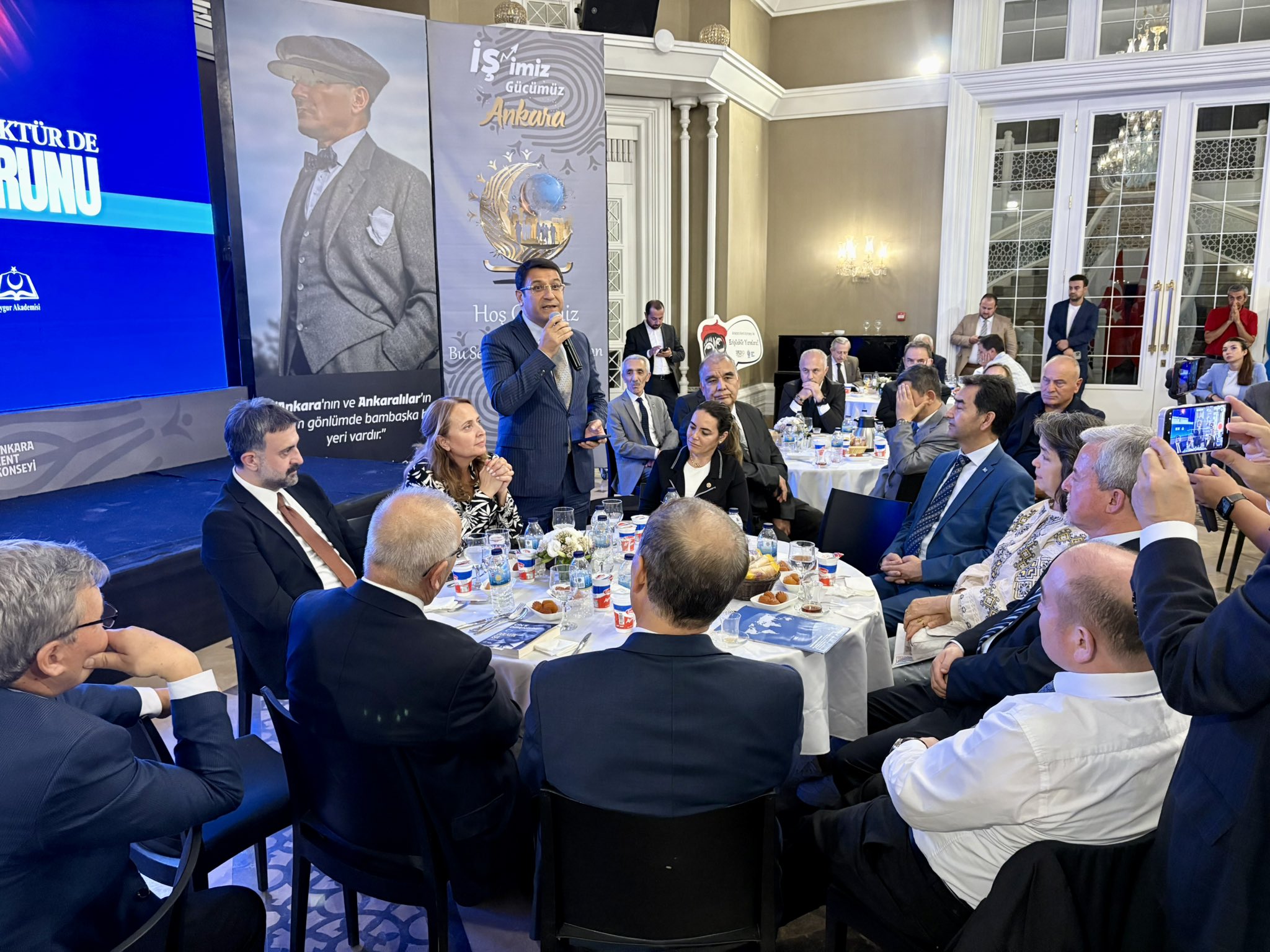
Testimony of a Concentration Camp Survivor
Kalbinur Siddik, a survivor of China’s concentration camps, gave a detailed account of her experiences in the final session of the panel. She said she had worked in two different camps, where large numbers of intellectuals—including scientists, businessmen, religious figures, writers, and poets—were detained. Despite having committed no crimes, they were subjected to severe torture, she said.

Siddik revealed that women were subjected to sexual abuse, many Uyghur women were forced to undergo abortions, and she herself had been subjected to this. She reported that young people were forced into labor, while under the so-called “pairing with families” campaign, Chinese men were placed in Uyghur households.
Closing
The closing remarks were delivered by Abdulhakim Idris, Director of the U.S.-based Uyghur Research Center. The panel concluded with a joint message from academics, politicians, and civil society representatives: Turkey must take more determined steps on East Turkistan and amplify the voice of the Uyghur people in the international arena.

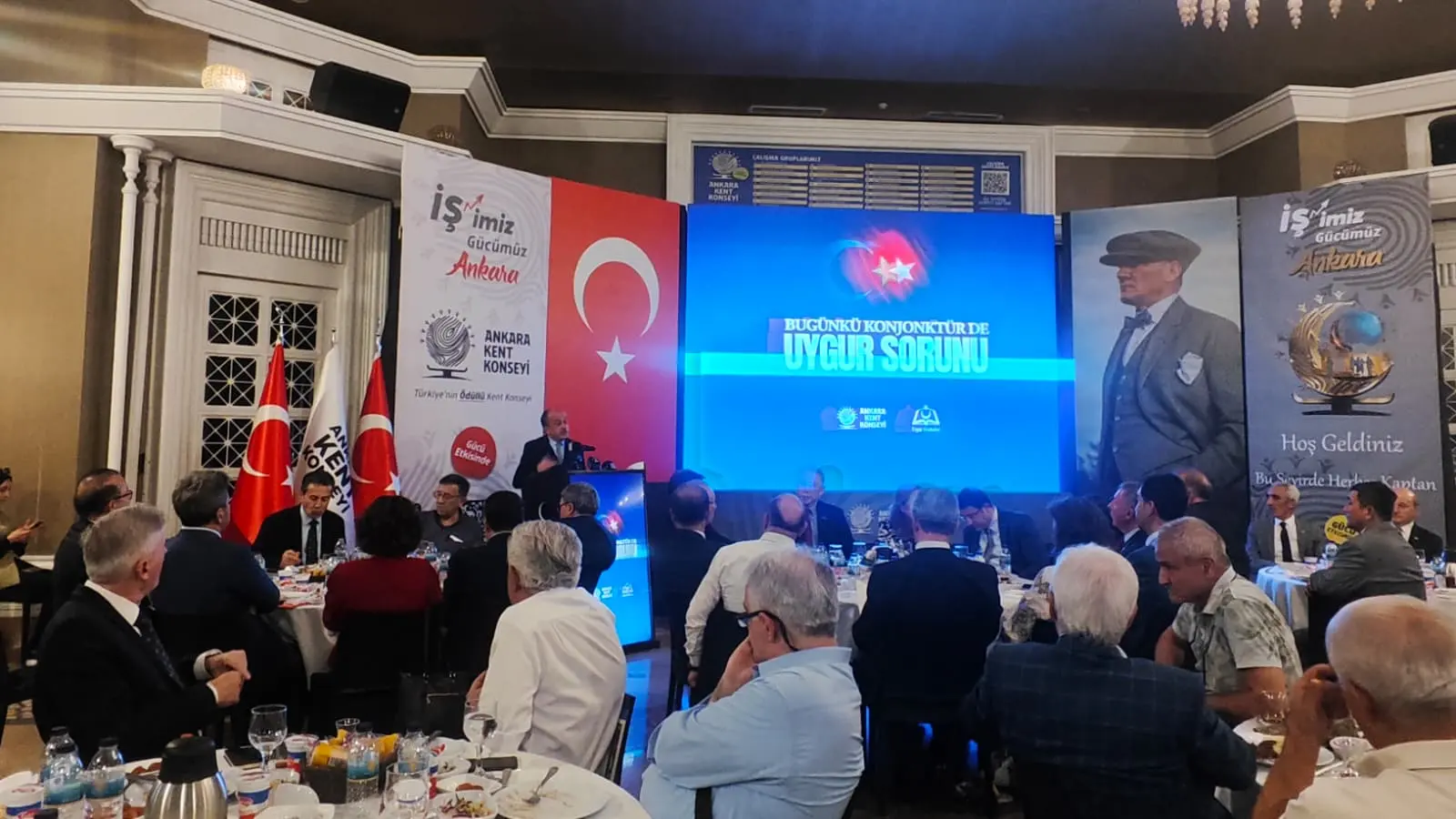
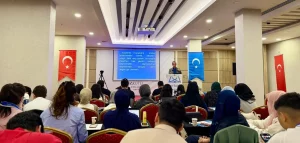
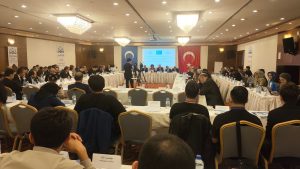

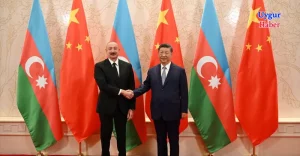
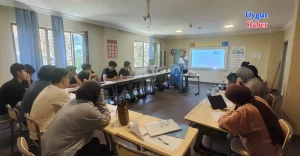


Be First to Comment